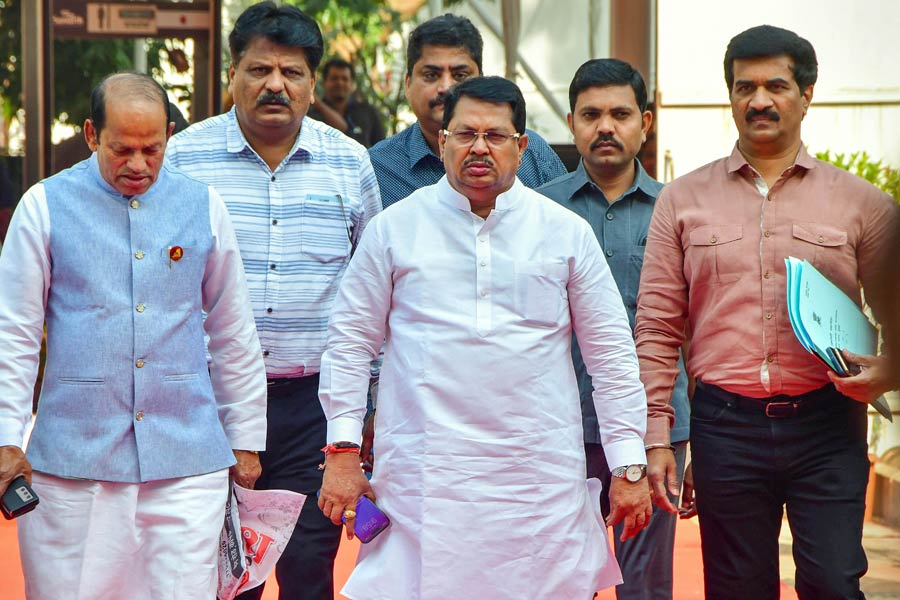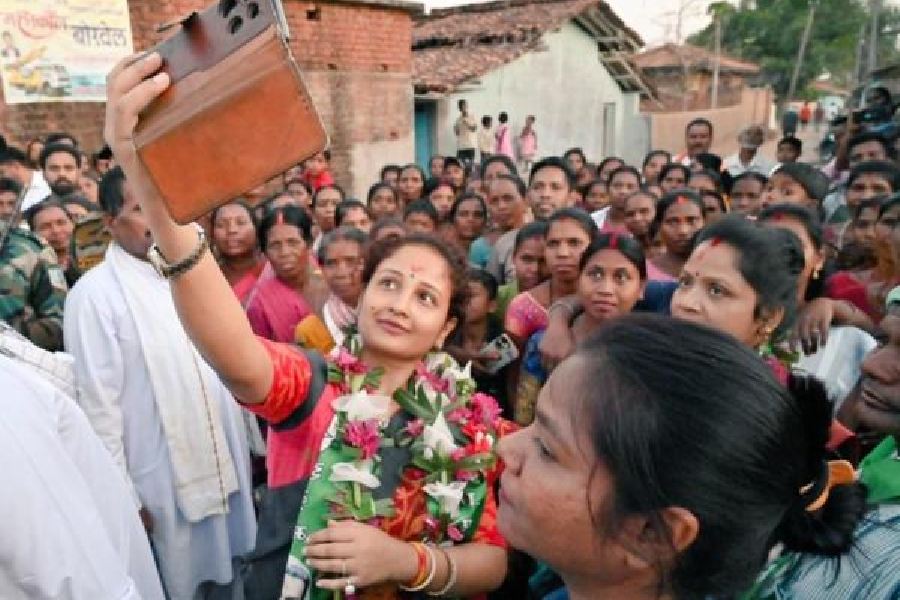Extreme steps
Sir — Be it protesters or campaigners, people often adopt innovative ways to communicate their point. Last year, lawmakers and police officers in some Western countries wore high heels to raise awareness about violence against women. However, Riley Gaines, a former American competitive swimmer, has criticised this step and likened it to climate activists throwing tomato soup on priceless artworks to protest against climate inaction. But is walking in women’s stilettos, which are not only notoriously uncomfortable but also an enduring symbol of gender bias, the same as vandalising rare art?
Mridul Gupta, Ghaziabad
Shields down
Sir — In a landmark judgment, the Supreme Court ended the parliamentary privilege of lawmakers of having immunity from prosecution for taking bribes for voting or speaking in Parliament or legislative assemblies (“SC takes away bribery shield for MPs, MLAs”, Mar 5). This is welcome. The seven-judge Constitution bench of the top court overruled the 1998 verdict by a five-judge bench that protected lawmakers who made a speech or voted in the House or the assemblies in exchange for a bribe. The top court rightly underlined that immunity cannot be invoked by people’s representatives in cases of bribery.
Parliamentary privilege must not be turned into a shield against corruption. Lawmakers are not above the law. It is hoped that the verdict will pave the way for ridding legislative bodies of corrupt members.
Santosh H. Raut, Satara, Maharashtra
Sir — By setting aside its 1998 verdict in the P.V. Narasimha Rao vs State case, the Supreme Court rightly upheld the constitutional principles of probity and equality (“Bribes off”, Mar 6). The court’s assertion that “bribery is not protected by parliamentary privilege” should serve as a deterrent for political leaders resorting to corruption while discharging their constitutional responsibilities. Care must also be taken to ensure that this verdict is not weaponised by the saffron dispensation given its penchant for targeting Opposition legislators.
M. Jeyaram, Sholavandan, Tamil Nadu
Tug of war
Sir — The Trinamul Congress made a mockery of justice by moving the Supreme Court against the Calcutta High Court order to transfer the custody of the suspended TMC strongman, Sheikh Shahjahan, to the Central Bureau of Investigation (“Shahjahan finally in CBI clasp”, Mar 7). The high court had laid down a deadline for the custody switch of Shahjahan but the state government refused to hand him over and moved the top court. Shahjahan has since been handed over to the CBI. Such undermining of a judicial order by an elected dispensation sets a dangerous precedent for democratic rule.
Arun Kumar Baksi, Calcutta
Sir — The top court took the right step by not listing for urgent hearing the West Bengal government’s plea against the Calcutta High Court order to hand over Sheikh Shahjahan to the CBI. Shahjahan held considerable sway over local politics and could be in a position to influence the investigation conducted by the state police. It is thus heartening that the matter has been handed over to the Central agency.
Murtaza Ahmad, Calcutta
Historic verdict
Sir — French lawmakers have overwhelmingly approved a bill that would enshrine abortion as a constitutional right. This makes France the only country in the world to explicitly guarantee women the right to voluntarily terminate their pregnancies. The move was proposed by the president, Emmanuel Macron, and will go a long way in ensuring the well-being of women.
In 2022, the Supreme Court of the United States of America overturned the Roe vs Wade ruling, which guaranteed women the constitutional right to abortion. The French law thus comes as a fitting response to the rising trend of bans imposed on abortion in several countries such as Hungary and Poland.
Vijay Singh Adhikari, Nainital
Get to the roots
Sir — In the article, “Mental health is political” (Mar 6), Sudarshan R. Kottai correctly analyses the socio-economic factors that are responsible for the rising number of student suicides in India. Kottai argues that psychiatric diagnoses in educational institutions do not take into consideration structural impediments such as class conflict, caste oppression and gender-based discrimination. A multifaceted investigation into the issue must be conducted to implement remedial measures.
Sanjit Ghatak, South 24 Parganas
Parting shot
Sir — It is heartening that the West Bengal Council of Higher Secondary Education will introduce the semester system for Classes XI and XII from the upcoming academic session (“Semesters in HS from 2024-2025 session”, Mar 7). This will make students engage with the syllabus throughout the year and not just before the exams. It is a significant educational reform.
Shyamal Thakur, East Burdwan










